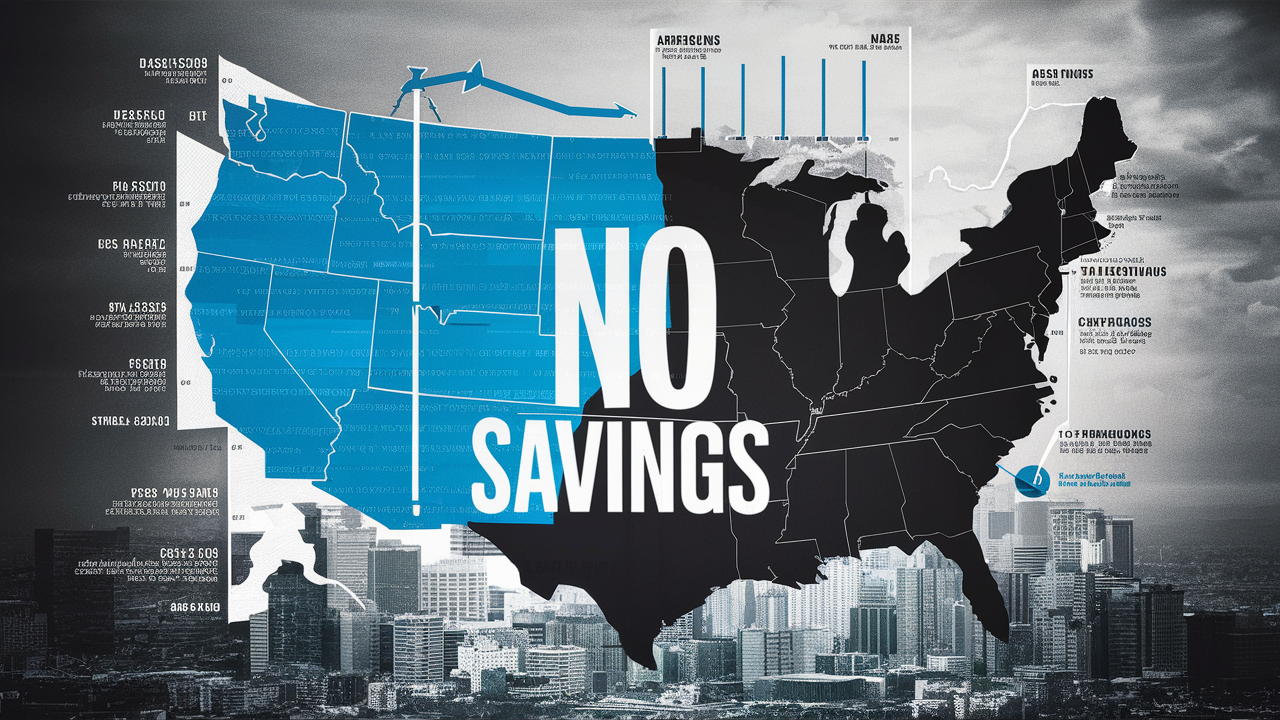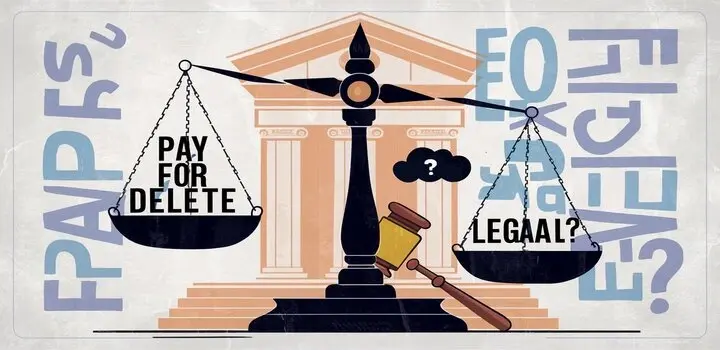-
Posted on: 19 Jul 2024

-
The ability to save money is often considered a cornerstone of financial stability. It provides a safety net for unexpected expenses, allows for future investments, and ultimately contributes to long-term financial security. However, the reality is that a significant portion of the American population struggles to save, leaving them vulnerable to financial hardship. Understanding the extent of this problem, the reasons behind it, and potential solutions is crucial for fostering a more financially resilient society.
The Grim Reality: Savings Statistics in America
While precise figures fluctuate depending on the source and methodology used, various studies consistently paint a concerning picture of savings rates in the United States. It's important to understand that "no savings" can mean different things to different surveys. Some consider a lack of an emergency fund as "no savings", while others only categorize those with zero dollars across all savings and investment accounts as having "no savings".
General Savings Statistics
- Significant Percentage with Little to No Savings: Numerous reports indicate that a sizable percentage of Americans have very little or no savings. For instance, surveys frequently highlight that around 20-40% of Americans would struggle to cover an unexpected $400 expense without borrowing money or selling something. This highlights the vulnerability of many households to even relatively small financial shocks.
- Retirement Savings Shortfalls: The picture is even bleaker when considering retirement savings. Many Americans are significantly behind on their retirement goals, raising concerns about their ability to maintain their living standards in old age. Studies often show that a large portion of the population has little to nothing saved for retirement, especially among younger generations who face mounting debt and stagnant wages.
- Disparities Across Demographics: The problem of insufficient savings is not evenly distributed across the population. Certain demographic groups, such as lower-income individuals, minorities, and women, are disproportionately affected by low savings rates. These disparities often reflect systemic inequalities in income, access to education, and opportunities for wealth accumulation.
Digging Deeper into the Numbers
To get a more granular understanding, let's consider some specific data points. It's crucial to remember that these numbers are estimates and can vary:
- Emergency Savings: As mentioned, the $400 emergency expense benchmark is a common indicator of financial preparedness. Surveys consistently show that a significant portion of Americans cannot readily cover such an expense, demonstrating a lack of a basic emergency fund.
- Retirement Savings by Age: Fidelity Investments, for example, provides guidelines for retirement savings based on age. While these are just guidelines, they highlight the magnitude of the problem. For instance, many individuals in their 50s and 60s are far short of the recommended savings targets for their age group. Resources like the Employee Benefit Research Institute (EBRI) also publish in-depth retirement confidence surveys, offering valuable insights into retirement savings trends.
- Median Savings: Looking at median savings figures can provide a more accurate picture than averages, which can be skewed by extremely wealthy individuals. The median savings account balance for Americans is often surprisingly low, reflecting the financial struggles of many households. While precise numbers fluctuate yearly, the trend consistently points towards a lack of substantial savings for a large portion of the population.
Why Are So Many Americans Struggling to Save?
The reasons behind the low savings rates in America are complex and multifaceted. They are often intertwined, creating a challenging cycle for many individuals and families.
Economic Factors
- Stagnant Wages: For many years, wage growth has lagged behind inflation, making it difficult for workers to increase their savings. Even those with stable jobs may find it challenging to save a significant portion of their income.
- Rising Cost of Living: The cost of essential expenses, such as housing, healthcare, and education, has been steadily increasing, outpacing wage growth and putting a strain on household budgets. These rising costs leave less disposable income available for saving.
- Debt Burden: Many Americans are burdened with significant debt, including student loans, credit card debt, and mortgages. These debt obligations consume a large portion of their income, leaving little room for saving.
- Economic Inequality: The widening gap between the rich and the poor contributes to the problem of low savings rates. Those at the lower end of the income spectrum often struggle to meet their basic needs, let alone save for the future.
Behavioral and Psychological Factors
- Lack of Financial Literacy: Many people lack the knowledge and skills necessary to manage their finances effectively. This can lead to poor financial decisions, such as overspending, taking on unnecessary debt, and neglecting to save for the future.
- Present Bias: Humans tend to prioritize immediate gratification over long-term goals. This can lead to a focus on spending in the present, rather than saving for the future.
- Lack of Trust in Financial Institutions: Some individuals may be hesitant to invest or save in traditional financial institutions due to a lack of trust or understanding of how these institutions work.
- Procrastination: Putting off saving for later is a common human tendency. People may believe they will start saving "someday," but often fail to take concrete steps to begin.
Systemic Factors
- Lack of Access to Financial Services: Those in underserved communities may lack access to banks, credit unions, and other financial services, making it difficult to save and manage their money. This is especially true in rural areas and low-income neighborhoods.
- Predatory Lending Practices: Payday lenders and other predatory lenders often target vulnerable populations with high-interest loans, trapping them in a cycle of debt and making it even more difficult to save.
- Limited Employer-Sponsored Retirement Plans: Not all employers offer retirement savings plans, such as 401(k)s, making it more challenging for employees to save for retirement. Even when offered, participation rates can be low due to lack of awareness or perceived affordability.
The Consequences of Low Savings
The lack of savings has significant consequences for individuals, families, and the economy as a whole.
- Financial Instability: Individuals with little or no savings are more vulnerable to financial shocks, such as job loss, medical emergencies, or unexpected car repairs. These events can quickly lead to debt, hardship, and even homelessness.
- Increased Stress and Anxiety: Financial insecurity can lead to chronic stress and anxiety, affecting mental and physical health.
- Delayed Retirement: Insufficient retirement savings can force individuals to delay retirement or work well into old age, impacting their quality of life.
- Economic Slowdown: A lack of savings can dampen consumer spending, which is a major driver of economic growth. When people are struggling to make ends meet, they have less money to spend on goods and services.
- Increased Reliance on Social Safety Nets: As more people struggle to save, there is increased pressure on social safety net programs, such as Social Security and Medicare, potentially straining government resources.
What Can Be Done to Improve Savings Rates?
Addressing the problem of low savings rates requires a multi-pronged approach involving individuals, employers, and policymakers.
Individual Strategies
- Create a Budget: Tracking income and expenses is the first step towards gaining control of finances. A budget can help identify areas where spending can be reduced and savings can be increased.
- Set Savings Goals: Defining specific savings goals, such as building an emergency fund or saving for retirement, can provide motivation and direction.
- Automate Savings: Setting up automatic transfers from a checking account to a savings account can make saving effortless.
- Reduce Debt: Prioritizing debt repayment can free up more income for saving. Consider strategies like the debt snowball or debt avalanche method.
- Increase Financial Literacy: Taking courses, reading books, and seeking advice from financial professionals can improve financial knowledge and decision-making skills.
Employer Strategies
- Offer Retirement Savings Plans: Employers should offer retirement savings plans, such as 401(k)s, with matching contributions to incentivize employees to save.
- Provide Financial Education: Employers can provide financial education programs to help employees improve their financial literacy.
- Implement Automatic Enrollment: Automatically enrolling employees in retirement savings plans can significantly increase participation rates.
- Offer Emergency Savings Programs: Some employers are starting to offer emergency savings programs that allow employees to save directly from their paycheck.
Policy Solutions
- Increase Minimum Wage: Raising the minimum wage can help low-income workers save more.
- Expand Access to Affordable Healthcare: Reducing healthcare costs can free up more income for saving.
- Reduce Student Loan Debt: Implementing student loan forgiveness programs or making college more affordable can reduce the debt burden on young people.
- Promote Financial Literacy Education: Investing in financial literacy education in schools and communities can equip individuals with the knowledge and skills they need to manage their finances effectively.
- Regulate Predatory Lending: Stronger regulations on payday lenders and other predatory lenders can protect vulnerable populations from being trapped in cycles of debt.
- Expand Social Security: Strengthening Social Security can provide a more secure retirement for future generations.
Conclusion
The fact that a significant portion of Americans have little to no savings is a serious problem with far-reaching consequences. While the reasons behind this trend are complex, addressing the issue requires a concerted effort from individuals, employers, and policymakers. By implementing strategies to increase savings rates, we can create a more financially secure and resilient society for all.











